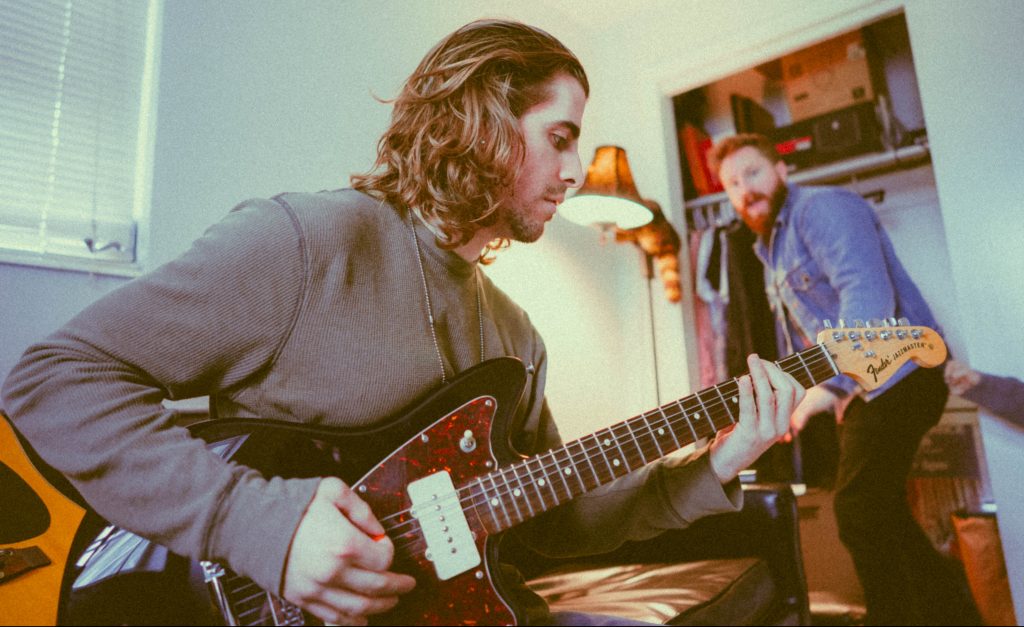
5 Tips For New Songwriters
- Songwriting
- 27th March 2018
- Joe Robinson
The first rule of making it in music is simple. Write good songs. But that's easier said than done. Here's 5 tips for new songwriters!
1) Don't Be Basic.
There is a fundamental difference between ‘basic’ and ‘simple’. Don’t get me wrong, simplicity is fine, and works great for a wide range of genres, but to be basic? That’s a no no, especcially for new songwriters. New songwriters are meant to invent new things and bring in new styles. But what exactly constitutes a ‘basic’ song? If your song is static and the emotions don’t flow or move anywhere, it’s basic. If it follows four chords in a style that’s been done a thousand times, it’s basic. Basically, if you are not being adventurous or implementing new flavours into your music, it’s basic. Change that. Experiment. Add weird sounds! Let the drummer sing! You are a new, original artist, so be original!
Music is always evolving, and there are always new sounds and styles coming along even from artists on the opposite ends of the musical spectrum. This is where you will find the most original influences. Take a jazz rhythm and layer it in grunge, or get a lo-fi hip hop beat and slap an indie riff around it. Some might work, some might not. This is how original styles are made.
For an insight into some new styles and flavours, check out our reviews of Puma Blue, Fizzy Blood and Calva Louise.
2) Know How To Structure a Song.
Knowing how to put a musical structure together is vital. The song structure dictates how the song flows section to section, and how your audience will feel when listening to it. So how do they actually work?
The most common song structure in western music is as follows:
intro – verse – chorus – verse – chorus – middle 8 / bridge – chorus – outro
But why not change it up? There is an infinite amount of ways to make a sandwich, and it’s the same for structure. You don’t even need to name your sections! You can have 8 sections that are all entirely different! Look at ‘Bohemian Rhapsody’ by Queen. It has an intro / verse, opera bridge, guitar solo, heavy verse, and it works fine. There are no set-in-stone rules when it comes to structure. Write for what the song needs, the song will let you know where it needs to go.
3) Write What You Feel.
The common phrasing here is ‘write what you know’. But it’s more important to write what you feel. Music is, at its core, a way of conveying emotion. If a song does not contain emotion, it is pointless. If you have had a particular experience that is emotional, relatable or personal, write about it. If it makes you smile, laugh, cry or shake, write about it. If you are writing about an experience that you’ve never had, it may come across as unauthentic.
It’s also important to forge your emotional cues into your structures. Have a happy verse and a sad chorus, have a depressing verse one and an ecstatic verse two. It’s important to take your listeners on a journey, so think of it like a film. Most films are not happy or sad all the way through, and it may be a wise move to think of your songs like stories. Build to a happy climax and then switch it to sad, or simply build your emotion through the song. Start out indifferent and end happy. But most of all, it must have emotion. Any emotion. Provided it is an emotion felt by humans, then you’re good to go!
Check out our review of Thomas & The Empty Orchestra & our interview with Seaker to find out a bit more about emotions and inspiration in music!

4) Scrutinise What You Write.
The most important question that you need to ask yourself while writing music is: ‘Is this the best I can do?’ If you are being 100% objective, then you may find the answer to be ‘no’. Everything you release has to be the one hundred percent best that you can do. There is no room for mediocrity in this industry, not when you are an independent artist building your own career.
But it can be hard to be 100% objective about your music, after all, it’s your baby! So it is also important to take criticism. If your audience prefer one of your mid set tracks to your big finale, don’t be offended, take it on board. You are the worst judge of your own music. Your favourite song that you have written may not be the one your audience prefers. Let your fans decide what they prefer.
5) Write. Write. Write.
There is no doubt about it, the first song you ever write will not be your best. You will write tens upon tens of songs before you arrive at one that is of a good enough standard to release. The only way to write good songs is to write lots of songs. If you write twenty songs, you have a bigger chance of coming across the one that is perfect.
Unless you are Elvis Presley (‘s ghost writer), you will not be writing timeless music from the get go. Practise. Hone your style. Practise writing, and you will eventually hit your stride. And when you do, you’ll know!
However, different things work for different people. This is true in every walk of life. So try different things, listen to our advice, or don’t. But the most important thing to do is to write. You will improve with time and practise!
So there you have it, 5 basic tips to get your started in songwriting. As you write more and more, this will all become second nature to you and the good stuff will start coming out. but until then, work at it. If you want to make a career out of your music, it has to be good, and it has to be enjoyable. Good luck.